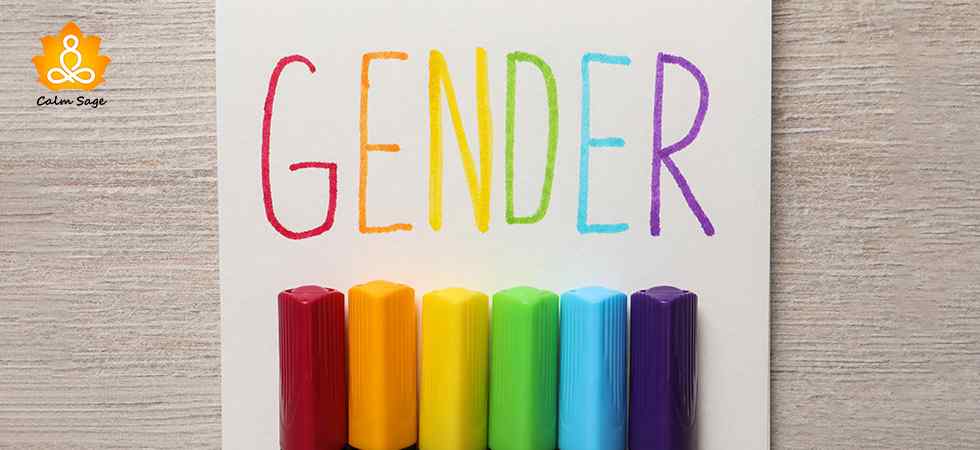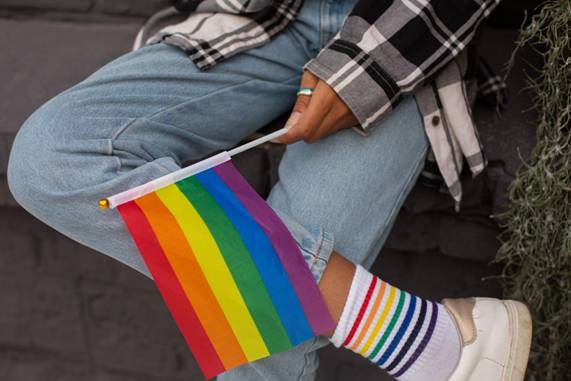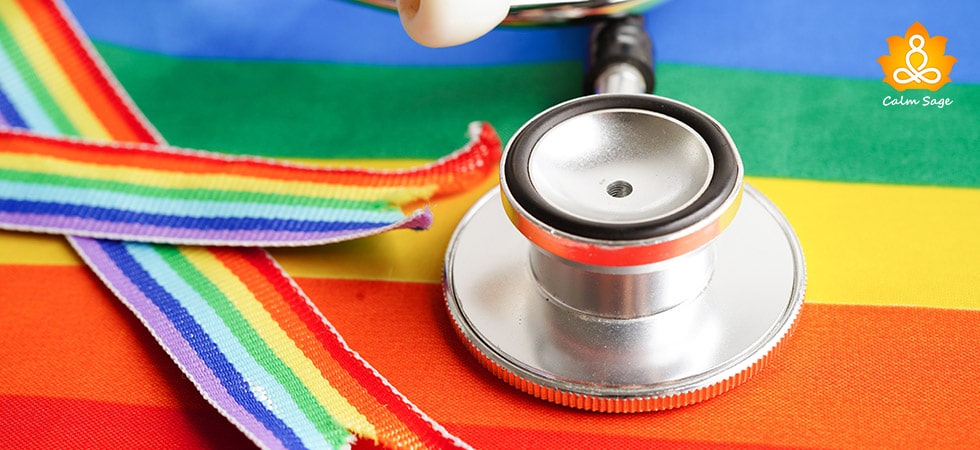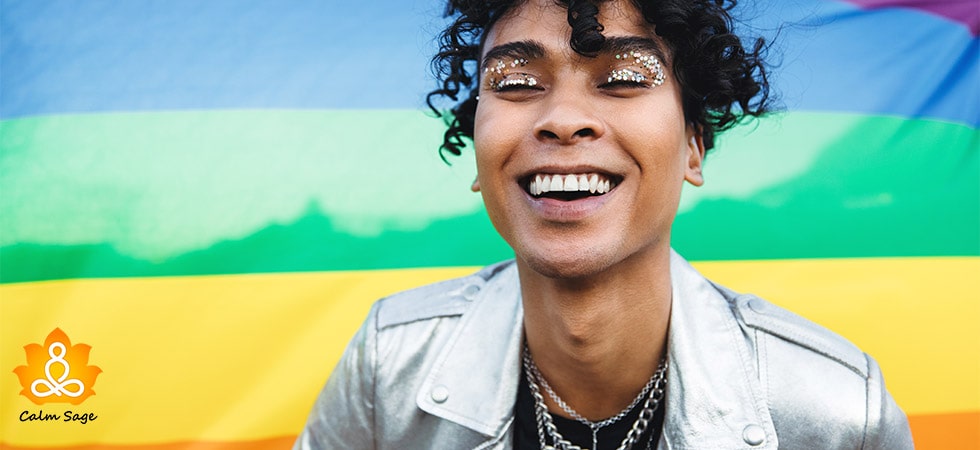Going Beyond Labels: Exploring The Meaning of Gender Fluidity

Gender is a vast spectrum and it’s fluid too! Ever changing, never stagnant. In the last few years, as the world has begun embracing gender expression as a right in itself, we’ve seen many people becoming comfortable exploring and going beyond traditional gender norms. Amid all this, it has become possible for one to be who they are without having to stick to a rigid definition of gender identity.
June is Pride Month! And in honor of it, we are exploring the various gender identities that have been introduced in the LGBTQIA+ community. Within the LGBTQIA+ community, many people are slowly finding themselves identifying as gender fluid and embracing gender fluidity. And I, for one, applaud them.
It’s not always easy to find the courage and redefine gender norms. People who identify as gender fluid do not align with a single identity, but several gender identities. And in some cases, no gender identities at all!
In this blog, we’re exploring what it means to be gender fluid and how you can support a loved one who is exploring their gender identity.
What Does it Mean to be Gender Fluid?

Gender fluidity is a concept where a person rejects the fixed or binary gender and embraces a more fluid or non-binary gender as their own. This concept states that a person’s gender expression and identity are not fixed but ever-changing and fluctuate over time. This means they move between gender identities and express their gender in ways that defy social norms, expectations, and stereotypes.
One day, you might feel more masculine and the next, you may be more comfortable being more feminine. This is what gender fluidity means. This gender identity may span over weeks or years and even days of the week.
Humans are constantly evolving and changing, and for many people, this includes their gender expression and gender identity as well. Gender-fluid people may choose to present their gender through forms of self-expression or other ways such as changing their clothing, hairstyles, etc.
A gender-fluid person may identify as being;
- Non-binary
- Transgender
- Genderqueer
- Gender diverse
- Agender, and more.
Gender fluidity is more about the state of being, than identity. Gender-fluid people also choose to be identified in terms of specific pronouns as they are not conformed to one gender. More often than not, gender-fluid pronouns are “They/Them”. However, it’s up to the individual to decide what pronouns or terms they would like to be addressed with.
“Am I Gender Fluid?”

It’s not always an easy question to answer. How does one know if they are genderfluid or not? In the end, it all comes down to considering what you feel or who you feel expressing yourself. How would you like to express yourself?
If you or a loved one of yours have been wondering about their gender identity, then know that they are not alone. Many people struggle to grapple with their gender identity and while this journey may seem alone, it isn’t. More and more people are choosing to explore beyond the binary gender.
Fun fact! Did you know that 1 in 6 Gen Z adults identify as LGBT? This number is only increasing as days and years go by!
In any case, if you’ve been asking yourself, “Am I gender fluid?” here are some questions you can ask yourself;
- What does gender mean to me?
- What makes me feel free to express myself?
- How can I identify myself as?
- How can I express and honor all of me?
These are just some of the introspective questions you can self-reflect on to understand more about your idea of gender identity and gender expression. If you find some answers, then all you can do is internally honor and respect yourself for being honest and remaining self-compassionate and lovable.
You might also wish to talk to your friends and family about your gender identity. If you do come out to your loved ones, make sure you do it safely and keep exploring how your identity feels to you. If you’re apprehensive about coming out to your loved ones, you can find some support and acceptance in social forums and like-minded communities.
Supporting Your Loved One Who Is Gender Fluid

Coming out as gender fluid is not always easy because there are people who don’t understand that gender is a fluid concept rather than a rigid one. In any case, support is important for anyone who is exploring their gender identity and wishes to feel comfortable with gender expression.
In a 2020 survey by The Trevor Project, it was found that 48% of LGBTQ youth reported self-harm. Over 60% of them were non-binary and transqueer youth. In another study, it was reported that suicide was a higher risk in trans people than in general adults.
One of the major causes of distress such as these mental health scares stems from the stigma surrounding the LGBTQIA+ community. Other factors include bullying, discrimination, social rejection, and lack of social support. After all, it is not easy to be yourself as you want to be when there is no safe space for you to be who you want to be.
When you’re told that your identity and gender expression are wrong, can it be easy to live without feeling the burden crushing you and your dreams?
If your loved one comes to you with the wish to explore their gender identity, you can help and support them by creating a safe and non-judgmental space for them to explore their gender identity. How?
Well, you can be careful about your language and terms. Make sure you avoid making presumptions. If you’re not sure about their gender identity or pronouns, ask them directly so that they feel heard and accepted.
Having gender-affirming spaces – home, school, and workplace – can help LGBTQIA+ people feel more comfortable and respected, in turn, reducing the risk of mental health conditions and suicide.
Another thing to keep in mind is that when you see people discriminating and bullying others in the LGBTQ community, speak up against intolerance. You can also take the initiative to involve others in your communication and educate them about being gender-affirming and accepting. Many people talk back and hurt others because they are either afraid or unaware of the topic itself.
You can take steps to educate yourself and people around you about gender fluidity and research more about how non-binary or gender-fluid people are treated. You can also seek communities and ally groups to join to learn more about your loved one’s gender identity.
What Next?
Your gender expression is your own. No one can dictate how to express yourself. You do you and what feels comfortable to you. You may find it confusing, but it’s OK. The important thing is that you allow yourself to explore more about yourself – your gender identity, expression, sexual orientation, and more – at your pace and with compassion and love.
You can also try to learn more about gender expression and gender identities through reading books that explore sexual orientation and gender expression, watching TedTalk of trans and non-binary people, journaling your feelings, and/or speaking with a gender-affirming or an LGBTQIA+ counselor or therapist.
For more LGBTQIA+ resources, you can reach out to;
- The Trevor Project – Helplines, counseling, and community support for the LGBTQ+ community
- Gender Spectrum – Online groups for trans, non-binary, and gender-expansive people and allies
- Trans Lifeline – For emotional and financial support to trans people
“Gender is not about conforming to expectations; it’s about embracing your truth and living as your authentic self.” – Alex Drummond
Choose to live the way you want to. Embrace it, own it, and celebrate who you are, how you want to!
Let me know what you think about gender fluidity and how else you can support a loved one who’s exploring their gender identity in the comments below!
Be proud!




















